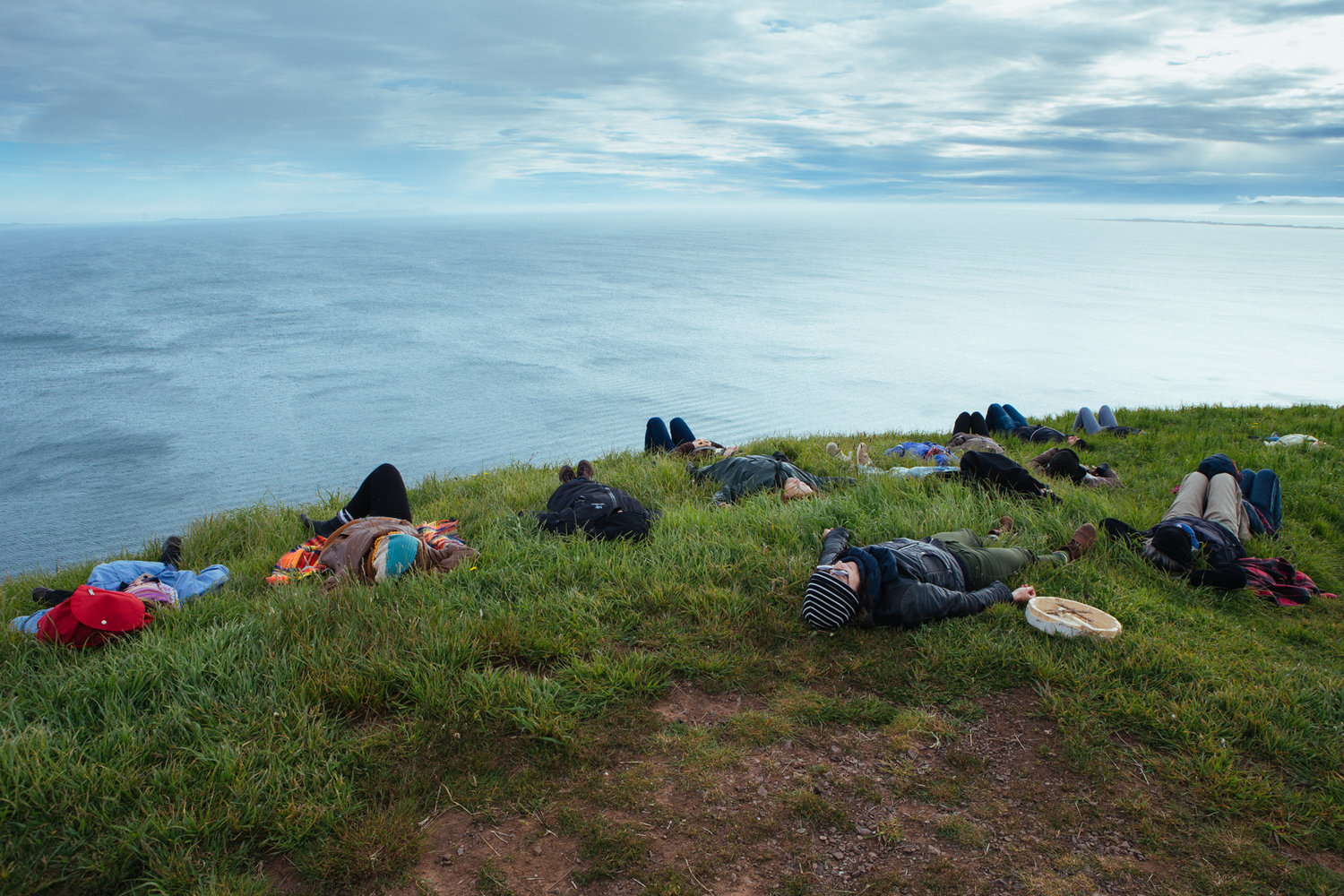Curator Collection: Announcing Robin Wall Kimmerer, Anchor Artist at Nocturne 2020
Shé:kon, Hello,
Lindsay Dobbin here, curator of Nocturne 2020. When considering a theme for this year’s Nocturne, I chose Echolocation because the phenomenon of emitting sound and listening to how they echo in return points to a method of creation ― one rooted in listening, relationship and reciprocity with the natural world. I was curious to ask other artists questions I often ask in my practice:
What is the role of art in transmitting our impact and collective responsibility as stewards of this land?
Can art deepen kinship and communication with the natural world, encourage collaboration and relationships, and imagine a sustainable way forward?
How can the land guide us as creators?
Our listening?
Our actions?
How can we embody practices of care, reciprocity and respect for the land and each other through creation?

When reflecting on who I would like to invite as an Anchor Artist for this year’s Nocturne, I immediately thought of Indigenous botanist and storyteller Robin Wall Kimmerer, as her work has been a deep recognition for me and so essential on my path as an artist and human being who is asking these questions. I know this is the case for many others as well. I am thrilled to announce that Robin will be part of Nocturne 2020, offering a keynote presentation and discussion!
ABOUT ROBIN WALL KIMMERER
Robin Wall Kimmerer is a mother, scientist, decorated professor, and enrolled member of the Citizen Potawatomi Nation. She is the author of Braiding Sweetgrass: Indigenous Wisdom, Scientific Knowledge and the Teaching of Plants, which has earned Kimmerer wide acclaim. Her first book, Gathering Moss: A Natural and Cultural History of Mosses, was awarded the John Burroughs Medal for outstanding nature writing, and her other work has appeared in Orion, Whole Terrain, and numerous scientific journals. She tours widely and has been featured on NPR’s On Being with Krista Tippett and in 2015 addressed the general assembly of the United Nations on the topic of “Healing Our Relationship with Nature.” Kimmerer lives in Syracuse, New York, where she is a SUNY Distinguished Teaching Professor of Environmental Biology, and the founder and director of the Center for Native Peoples and the Environment.
To me, storytelling is the heart of art, and Robin illustrates the profound responsibility and gifts that come with meaningfully witnessing and being in relation to our more-than-human-kin. Both of her books, Braiding Sweetgrass and Gathering Moss, are offerings to and an expression of the beauty she experiences through her listening and connection.

Robin communicates with such gratitude and reverence for the living world ― in a way that inspires others to listen to the sacred bond that is inherent in our being ― and demonstrates that reciprocity is a “generative and creative way to be a human in the world.”
If you’re not already, I encourage you to become familiar over the coming months with Robin’s work. I’m going to leave you with this quote from Robin, from when she was on the podcast On Being (the link to listen to the full episode, which I totally recommend, is below):
“The idea of reciprocity, of recognizing that we humans do have gifts that we can give in return for all that has been given to us is, I think, a really generative and creative way to be a human in the world. Some of our oldest teachings are saying, what does it mean to be an educated person? It means that you know what your gift is and how to give it on behalf of the land and of the people, just like every single species has its own gift. And if one of those species and the gifts that it carries is missing in biodiversity, the ecosystem is depauperate, the ecosystem is too simple. It doesn’t work as well when that gift is missing.” ― Robin Wall Kimmerer, From On Being (podcast) with Krista Tippett
MORE FROM ROBIN WALL KIMMERER:
On Being episode featuring Robin Wall Kimmerer
Braiding Sweetgrass: Indigenous Wisdom, Scientific Knowledge and the Teaching of Plants








